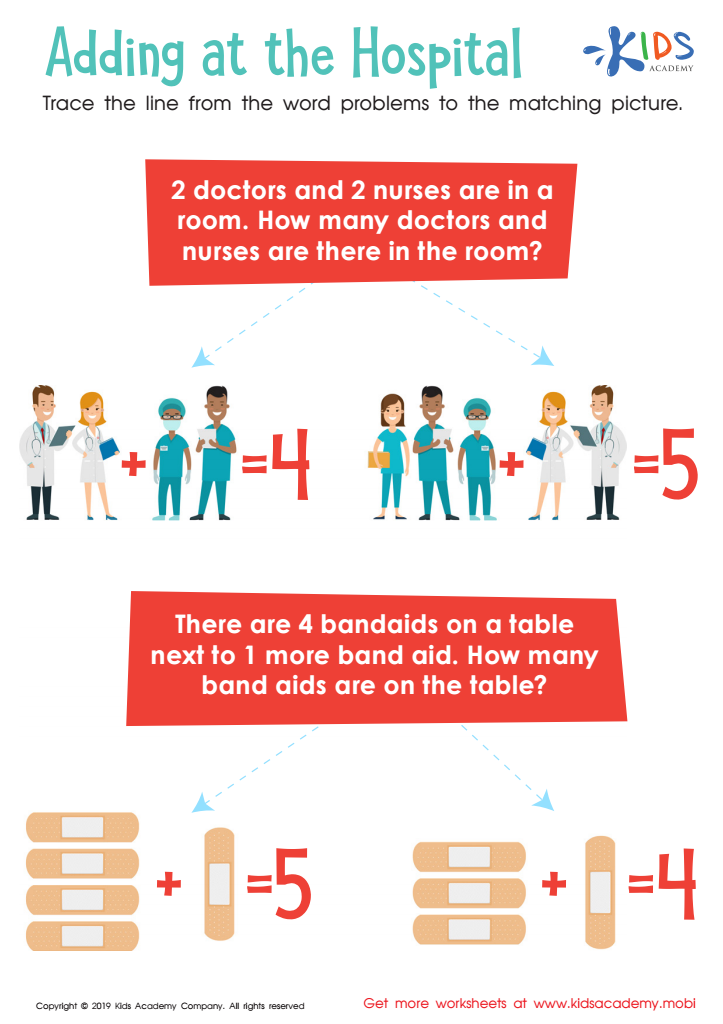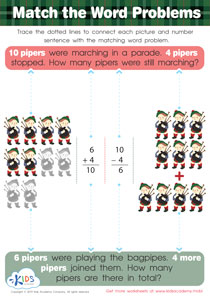Mental math practice Normal Addition Worksheets for 4-Year-Olds
3 filtered results
-
From - To
Welcome to our Mental Math Practice Normal Addition Worksheets for 4-Year-Olds! Designed to foster early numeracy skills, these worksheets make learning addition fun and engaging. Our carefully crafted activities help young learners develop mental math abilities by solving simple addition problems ranging from 1 to 10. Each worksheet encourages children to practice finding sums without relying on counting objects, strengthening their understanding of quantities. With colorful illustrations and interactive exercises, these worksheets capture children's attention, promoting a love for math. Empower your little ones to build confidence in their math skills—download our worksheets today for a delightful educational journey!


7 Continents and 7 Seas Worksheet


Adding at the Hospital Worksheet


Tricky Problems Worksheet: Part 2
Parents and teachers should prioritize mental math practice in normal addition for 4-year-olds due to its significant impact on early childhood development. Engaging young children in mental addition helps build a strong foundation in mathematics, which is crucial for their academic success. At this age, children's brains are highly adaptable, making it an ideal time for them to cultivate problem-solving skills and numerical reasoning.
Moreover, mental math enhances cognitive abilities, including memory, attention, and critical thinking. As children solve simple addition problems in their heads, they learn to process information quickly and accurately, which can boost their confidence in handling more complex concepts later on.
Mental math also fosters a positive attitude towards mathematics. By using fun and engaging activities, such as counting objects or playing math games, children can develop a love for numbers and strengthen their mathematical intuition. This positive experience will resonate throughout their educational journey.
Additionally, practicing addition mentally promotes stronger communication skills, as children articulate their thought processes. In this era of increasing reliance on technology, nurturing basic math skills equips children with essential life skills that will serve them well beyond the classroom. In summary, prioritizing mental math at a young age lays the groundwork for future academic and personal success.
 Assign to My Students
Assign to My Students















